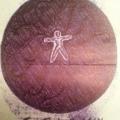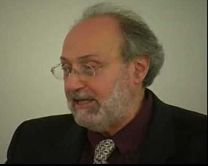142 - Dimitri Gutas on Avicenna
Peter talks to leading Avicenna scholar Dimitri Gutas about Avicenna's sources, philosophical methods, and influence.
Themes:
• D. Gutas, Avicenna and the Aristotelian Tradition: Introduction to Reading Avicenna’s Philosophical Works (Leiden: 1988, 2nd revised ed. 2014).
• D. Gutas, Greek Philosophers in the Arabic Tradition (Aldershot: 2000).
• D. Gutas, “Avicenna’s Eastern (‘Oriental’) Philosophy: Nature, Contents, Transmission,” Arabic Sciences and Philosophy 10 (2000), 159‑80.
• D. Gutas, “Intuition and Thinking: The Evolving Structure of Avicenna’s Epistemology,” in R. Wisnovsky (ed.), Aspects of Avicenna (Princeton: 2001), 1-38.
• D. Gutas, “The Heritage of Avicenna: The Golden Age of Arabic Philosophy, 1000‑ca. 1350,” in J.L. Janssens and D. De Smet (eds), Avicenna and His Heritage (Leuven: 2002), 81-97.
• D. Gutas, “Intellect Without Limits: The Absence of Mysticism in Avicenna,” in M. Cândida-Pacheco and J. Francisco-Meirinhos (eds), Intellect et Imagination dans la Philosophie Médiévale (Turnhout: 2006), vol.1, 351-72.
• D. Gutas, “Avicenna’s Philosophical Project,” in P. Adamson (ed.), Interpreting Avicenna (Cambridge: 2013), 28-47.







Comments
Mystics or Anti-Mystics?
Thank you very much Dr. Adamson and Dr. Gutas for the enlightening peek into the thought of Ibn Sina. I am commenting however because I am very curious to better understand your interpretation of Avicenna as a non-mystical philosopher, as it is an interpretation that "mystifies" (pun-intended) me in some ways. Dr. Gutas in his book seems to argue that Ibn Sina rationalized mystical and prophetic intuition and in doing so de-mystified them, but I struggle to feel like that explanation truly does justice to figures like Avicenna or honestly any of the ancient philosophers. Mainly, I worry that this interpretation somewhat anachronistically projects a modern sense of what it means to be "rational" - a very secular, material scienticism - onto figures whom, from what I can tell, understood the hight of rationality to be achieving what strikes me as an exceptionally mystical state of union with what is literally the Divine's Intellect itself. While I am commenting on this podcast on Ibn Sina, this issue extends in my view as far back as philosophers as Aristotle and Plato, who with their conception of unmoved-movers who rotate the spheres by inspiring them or of transcendant principles of "The Good" that emenate perfection unto the world, seem to be to full of ideas that do not pass at all as strictly "rational" in the modern sense but rather strike me as deeply permeated with religious, otherworldly and, perhaps, "mystical" thought. How in your view does this state of union with the world intellect differs in essence from, for instance, the Sufis objective of union with the Divine itself in order to have access to what they term "haqiqah/haqa'iq", the unveiled reality of all things, essences, and objects? At the heart of this inquiry is a much greater question that I feel is relevant to these podcasts and the treatment of these figures, being simply, how is it you are defining the idea of "mysticism" when you say that you feel that figures like Plato, Plotinus, and Ibn Sina have had in your view the "mystical" aspects of their doctrine exaggerated or interpolated? I think this is a very important question to examine.
Add new comment